As many of you may have noticed, our wonderful “mares” are at the beginning of that time of year where their seasons are starting to show. For those of us who have mares as our equine partners, we realize that managing a mare requires a different protocol than does managing a gelding or a stallion. When our mares are “in season”, we may notice symptoms ranging from lack of concentration all the way to severe physical discomfort. These things can make our lives as horse owners a little more difficult, but understanding what is happening is the key to creating a regiment that will work for you and “your girl”.
Mares in Season
The typical mare will cycle between the months of April and September. For those of you who feel like your mare is “always in season” …you’re a on the right track! A mare’s cycle is shorter than a woman’s, and lasts for around three weeks – with an average of 5 days per cycle. That means that it’s quite possible to notice symptoms for about a week every two to three weeks! While many mares seem to come into season “lightly” – showing few symptoms at all – some have an extremely difficult time.
Reproduction is the strongest innate drive in your mare; she has a goal, and that goal is to have a foal. As the days get longer and conditions are more favorable, her body is telling her that it’s time to find a mate and reproduce. This drive can cause certain behavioral issues that make keeping a riding or showing schedule a little more of a challenge. When your mare is in season, she is no longer completely focused on you, she is preoccupied with what her body is telling her is most important. This preoccupation will likely include the following symptoms:
Most Common Symptoms
- Unfocused Mind
- Preoccupied with Gelding or Stallions…and Equally Preoccupied with Proximity to Other Mares
- Physical Discomfort – Sore Flanks, Belly, Sides, etc.
- “Flagging” of the Tail
- Overall Sensitivity and Irritability
Less Common Symptoms
- Colic – Yes, Many Mares Have Such Difficult Cycles That Colic Can be Induced
- Extreme Irritability – Nipping, Kicking, Squealing, etc.
- Increased Spookiness or “Startle Points”
What Can We Do?
Now that we know what is happening with our mares, we have to figure out a way to work with, or around, their natural drive. When your mare is fully “in season”, it is going to be more difficult for her to concentrate, both due to physical pain or distress, as well as metal preoccupation. Studies have shown that taking this into account and adjusting workouts is often the best way to go. Don’t pick on your mare when she’s in season – if she isn’t listening or working up to her potential, getting into a fight with her isn’t going to help anything. If it’s possible to schedule “off days” for the heaviest days of her season, you can give her a little relief by just turning her out or doing some light lunging. If you do have to ride or show during this time, try to keep your workouts short and give her something specific to think about: ground poles, trot to canter transitions, circles…anything that will require her to focus for a short period of time and then be finished.
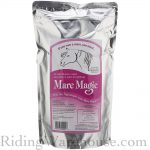 For mares who have extremely painful cycles, there are certain products on the market that can help, including “Mare Magic” or “Moody Mare”. These products typically contain ingredients such as Raspberry leaves and Chaste Tree. Many owners choose only to treat their mares with these natural remedies during the “7 Months of Friskiness” that is their “cycle”, while others (like me) keep their mares on these things year-round. Regumate is also a helpful product that you can get from your veterinarian that basically tricks your mare’s body into believing she is “in foal” – while this does seem to help with some of symptoms, it is also not without risk. If you’re using Regumate on your mare, you must always use gloves when giving her daily dose, and you can’t miss doses, also, this product can cause a period of infertility in your mare after stopping usage. Lastly, Banamine can be extremely helpful during those very painful cycles – a low dose for a day or two during a bad cycle can really help your mare feel more like herself.
For mares who have extremely painful cycles, there are certain products on the market that can help, including “Mare Magic” or “Moody Mare”. These products typically contain ingredients such as Raspberry leaves and Chaste Tree. Many owners choose only to treat their mares with these natural remedies during the “7 Months of Friskiness” that is their “cycle”, while others (like me) keep their mares on these things year-round. Regumate is also a helpful product that you can get from your veterinarian that basically tricks your mare’s body into believing she is “in foal” – while this does seem to help with some of symptoms, it is also not without risk. If you’re using Regumate on your mare, you must always use gloves when giving her daily dose, and you can’t miss doses, also, this product can cause a period of infertility in your mare after stopping usage. Lastly, Banamine can be extremely helpful during those very painful cycles – a low dose for a day or two during a bad cycle can really help your mare feel more like herself.
If your mare is one whose seasons seem to come on like a Hurricane and she experiences extreme discomfort, it’s worth having her checked out by your veterinarian. Mares can develop cysts or hormonal imbalances that can cause cycles to be even more extreme. A blood test and examination will give you some piece of mind.
In the end, the trick to managing a “moody mare” is really understanding. Women go through some of the same things that mares go through, and mares require some extra patience and care during these tougher times of the month. Don’t pick on your mare, don’t require her to focus too much, make sure her diet is suitable for her comfort, and if she needs a little extra help or pain relief, give it to her.
Cover Photo Credit: Charlotte Gorton

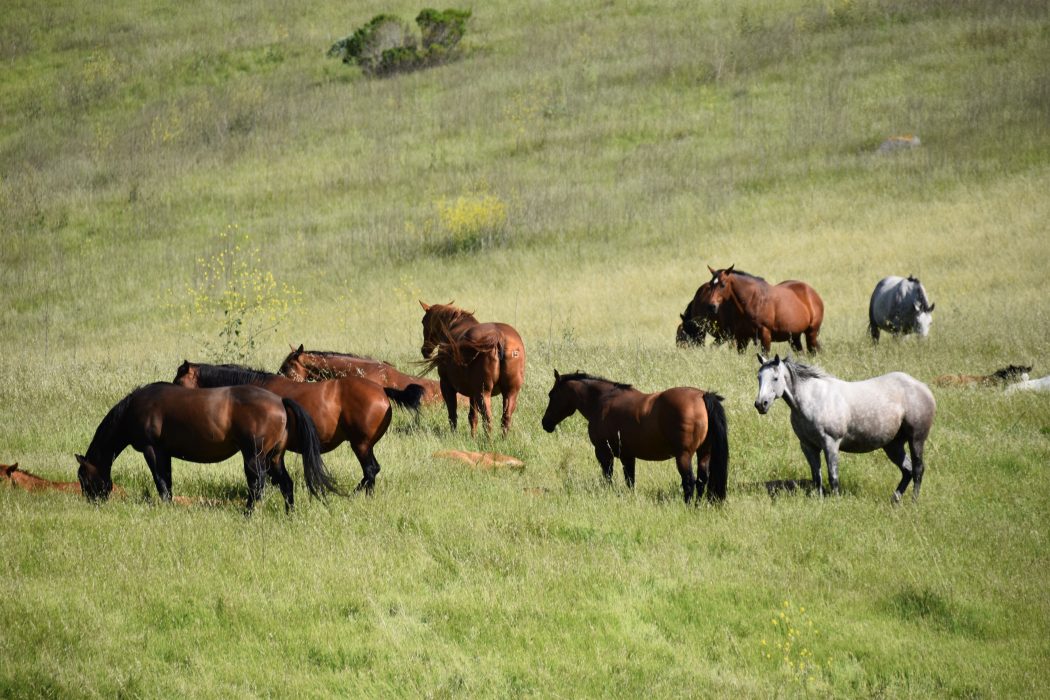
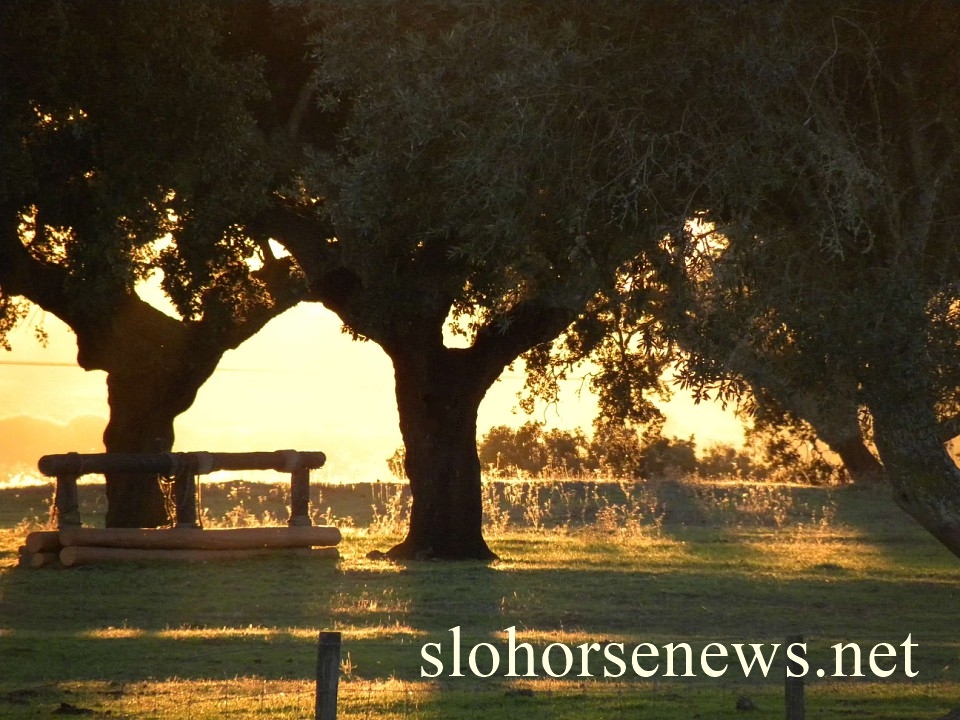
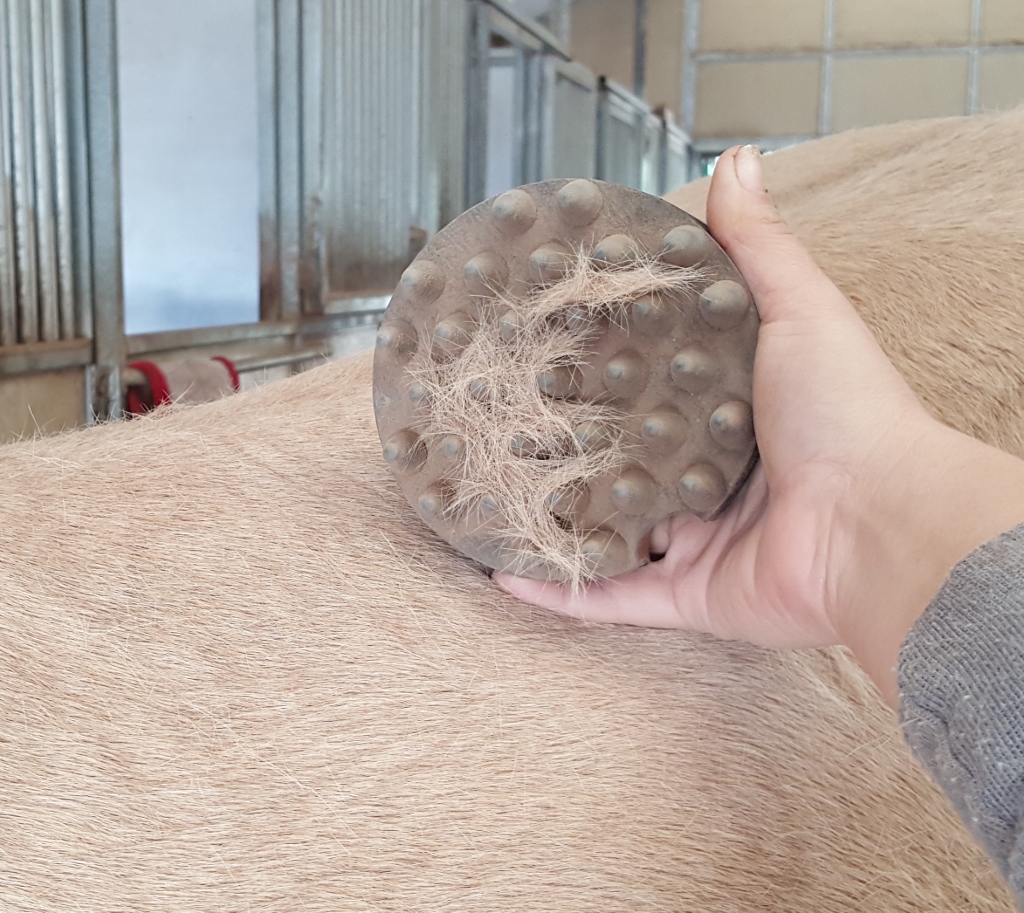
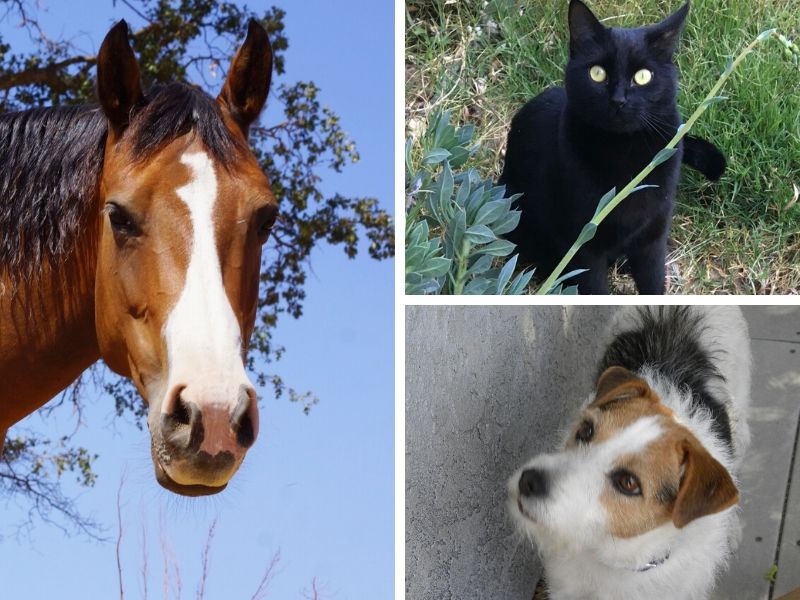
Compare the mares to human women. They go through the same cycles as we do from PMS to estrus. Gestation is longer but they suffer from the same symptoms as we do. Take that into account when you’re dealing with a mare.